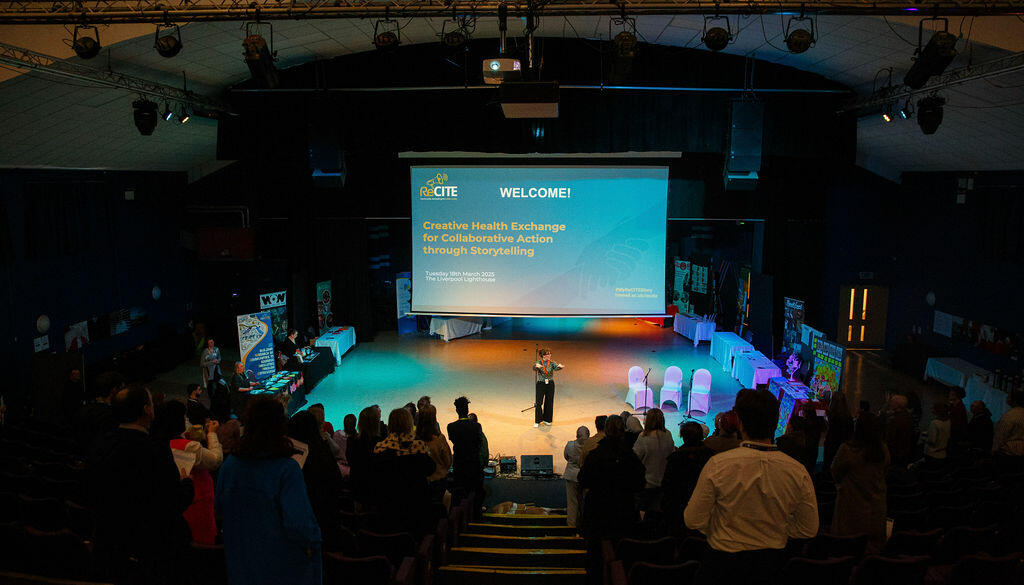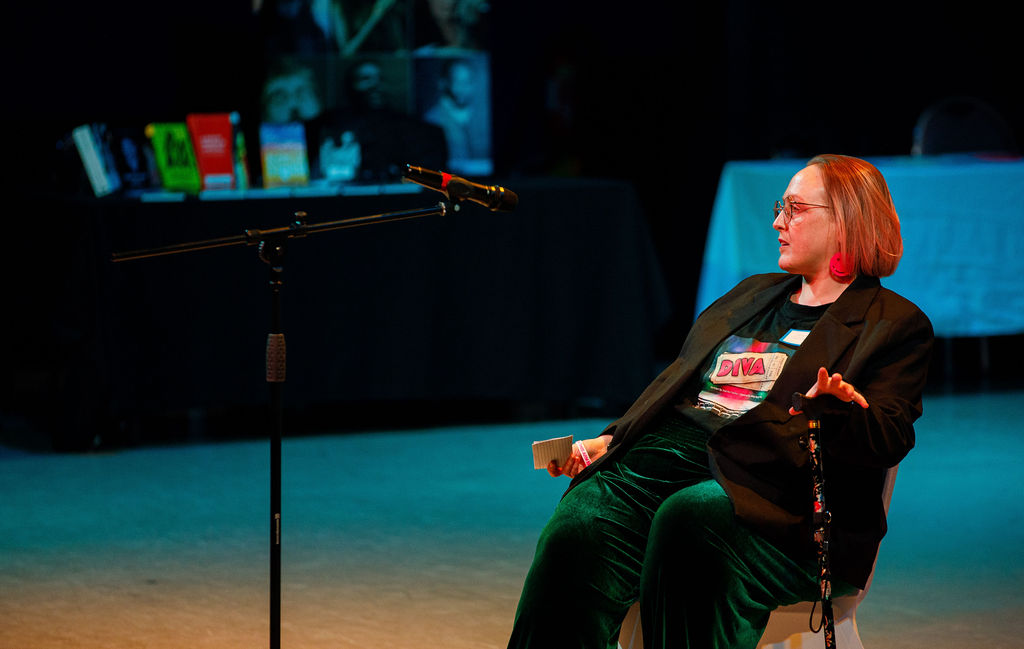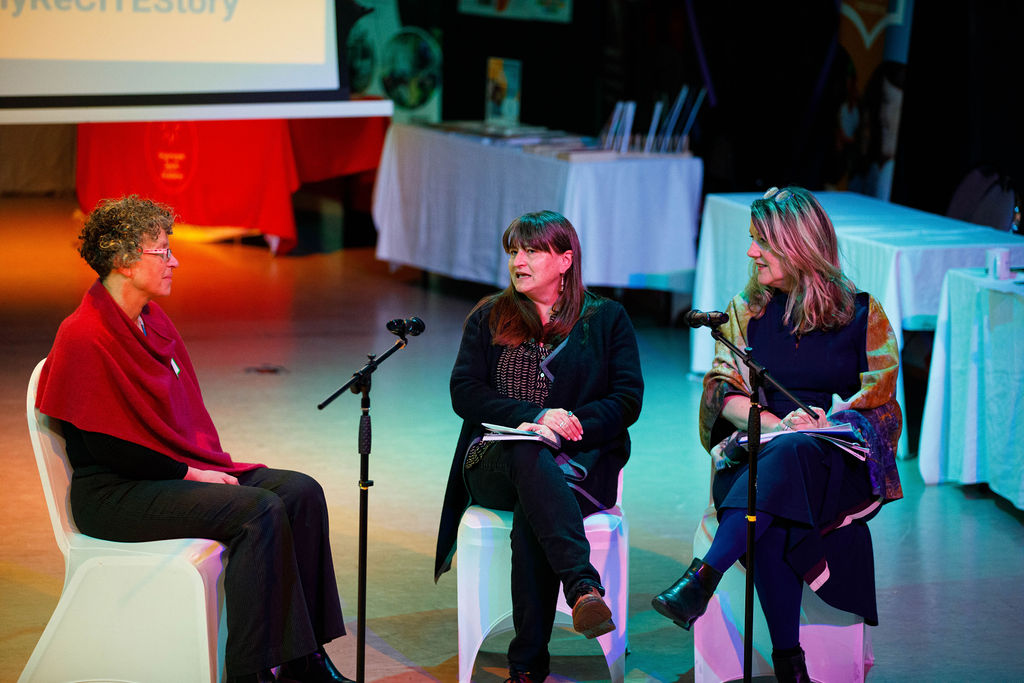
“Creativity brought me back to life.” – Joanne Collins
In a world where health inequities continue to widen, innovative and creative approaches are needed to ensure everyone has access to the support they need for their physical, mental, and social well-being. The iconic Liverpool Lighthouse in the heart of Anfield was buzzing with life during the first-ever Creative Health Exchange in the Liverpool City Region - a vibrant day that brought together artists, health providers, community leaders, and volunteers to imagine new ways to tackle entrenched health inequities.
More than an event, it marked the beginning of a movement: one where storytelling, collaboration, and creativity take centre stage in shaping healthier, more equitable communities.
Why Now?
Current Health Systems Are Failing Many Communities. “What is happening is not working and is unsustainable … We need to embed creative health as everyday practice - in housing, skills, and beyond.” - Sarah Lovell, Culture Lead, Liverpool City Region Combined Authority.
Across the Northwest, the gaps in life expectancy and healthy life years have been growing - disparities that worsened during COVID-19 and persist today. As Dr. Vicki Doyle, Director at Capacity Development International, noted, “If we do nothing about it, it is unjust.”
The Creative Health Exchange, organised by creative partner Writing on the Wall with support by consortium partners Capacity Development International, LSTM and iiCON, was born out of a shared urgency to try something new and strengthen the ecosystem - to move beyond fragmented, short-term creative health initiatives and toward sustainable, community-driven change. It is one of the interventions at ReCITE, a research programme blending creativity with healthcare. Local academic and creative partners work in collaboration to engage people living in underserved communities across Liverpool, Knowsley and Sefton using the power of stories to promote health prevention and mental wellbeing.
A Day of Voices, Vision, and Vitality
From the moment doors opened, the atmosphere was electric. Live music, poetry, photography, and theatre filled the space with emotional resonance and energy. Taster workshops explored movement, trauma-informed practice, and creative health interventions. And screenings of award-winning films like Four X-Rays Could Save Your Life combining health information with humour and When You Know (Childbirth in the Asylum System) which brought visceral insight into the lived experiences behind health data.
The day unfolded in zones designed for different kinds of engagement:
- Auditorium: Performances and panels, blending emotion with advocacy.
- Marketplace: A hive of networking and showcasing creative health projects.
- Workshops: Interactive, hands-on experiences designed to connect mind, body, and story.

From Lived Experience to System Change

What set the event apart was the way it elevated real voices. Like that of Joanne Collins, who turned her breast cancer journey into the powerful one-women theatre show Diva:
“My cancer treatment saved me from death, but my creativity brought me back to life.”
Or Simon Abrams, a GP who worked on a ReCITE breast screening project:
“We used creative methods I’ve never seen before in medicine - and it worked. Screening numbers soared.”
These stories were more than personal - they were political. They challenged the status quo, sparked conversations about systems that don’t serve everyone equally, and reminded us that health is not just about medicine - it’s about meaning, connection, and context.
What We Learned
The day didn’t just leave people inspired - it left them equipped. Here are five key takeaways that emerged from the conversations, performances, and panels:
- Collaboration over Competition: We are stronger when we work together. Breaking out of silos and embracing diverse perspectives is essential for solving complex health challenges.
- Diversity is a Strength: Inclusion isn’t optional - it’s foundational. We need a range of voices, experiences, and ways of thinking to bring about lasting change.
- No Hierarchies, Just Teamwork: Real progress happens when we dismantle traditional power structures and work side-by-side in human-centred ways.
- Creativity Breaks Barriers: Art, stories, and creative expression build bridges, foster empathy, and open doors to new conversations - especially where traditional methods have failed.
- The Time for Action is Now: As systems shift, the momentum for Creative Health has never been stronger. This isn’t just a nice-to-have - it’s a must-have for the future of inclusive health.

What Needs to Happen Next?
One clear message echoed throughout the day: a Creative Health Strategy is essential. It must be long-term, co-designed, and funded across sectors -not just through arts budgets, but via health, housing, education, and skills.
“We need to stop funding little projects and start building ecosystems of care,” said Dr. Miriam Taegtmeyer, Professor Global Health LSTM and Principal Investigator ReCITE.
“Let’s bring joy, humour, and calmness into health,” added poet Louise Fazackerley. “We need that to create real change.”
Some panellists dreamed bigger:
- A “Creative Health Hub” for collaboration and evidence-gathering.
- A system that values community voices as much as clinical ones.
- Funding models that support longevity, not just pilot projects.
As Rachel Tolhurst, Professor in Social Sciences LSTM and co-investigator ReCITE, closed the event:
“There’s already so much happening. What we need now is visibility, connectivity, and support.”
The Movement Has Begun
The Creative Health Exchange reminded us that stories can heal - not only individuals, but entire systems. That collaboration can outshine competition. And that the arts aren’t just expressive -they’re transformative.
This was just the beginning. Now it's time to grow the momentum.
“Let’s create something that is more than the sum of its parts.”
The next Creative Health Exchange is planned for July 2026 in collaboration with Liverpool City Region Combined Authority and will embrace multi-sectoralism including arts, health, community, housing, transport and more...
For access to materials form the Event please click here